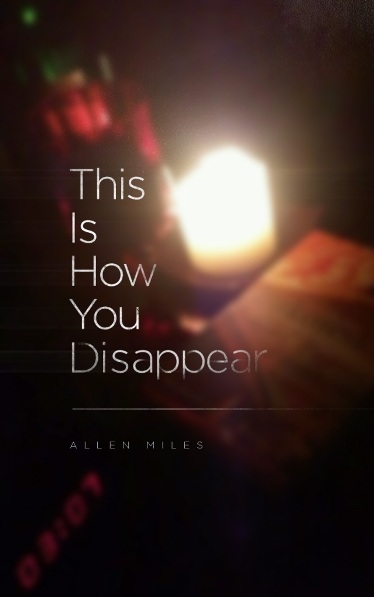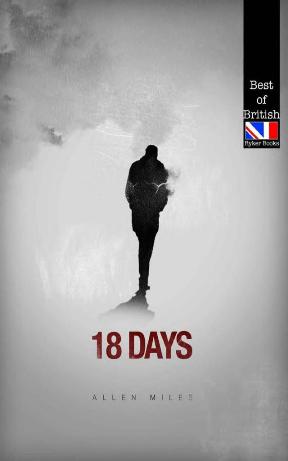___________________________________________________________
I was never cut out for a career. I’m too socially awkward and I never found anything that stirred my passions enough to attempt to forge a livelihood from it. I have a job, but I refuse to be one of the arse-kissing yes-spitters in my workplace so I’ll never get on the ladder. I have found people who I get on with at work and they have similar principals/flaws (same thing, these days), which is why they’ve become my friends. If I enjoy any success in my lifetime it will be through something out of the ordinary, and I’ve known that since I was about twelve years old. It was obvious by the age of about eight that I was never going to be a professional footballer, due to my lack of a left foot and inability to, as my Dad said, “Get my head up”. By the age of fourteen I wanted to be a musician. I learned, very slowly, to play the guitar, and wrote lyrics. By the age of seventeen I had met someone who thought similarly, and we put our plans in progress to conquer the world with our punk band. And we told exactly no-one.
This is the problem I have with my writing career. It was exactly the same as when I was in my band. Back then when someone would ask me if I was in a band, I’d raise a hand to my face, shuffle my feet, look at the floor and mumble “Well, yeah, sort of…” when I should have been drawing myself up to my full height, drilling my eyes into the questioner’s face in the manner of Dwayne “The Rock” Johnson and saying with all the arrogance in the world, “Damn right I’m in a band, we’re brilliant, and pretty soon you’re gonna be hearing all about us.” Even when we were in a position of promise, my inner-Costanza would race to the surface, making me spout forth a woefully misjudged joke or attempt to be ironic. I remember once we played a venue that was absolutely rammed with young emo kids who had come to see the band we were supporting, not exactly our market but one we certainly could have worked on. Rather than seeing the potential, I took the mic and sighed, “Good evening, we’re Sal Paradise, you won’t like us.”
The reasons I don’t brag about my literary endeavours are three-fold: The first is, I think, pretty acceptable. I hate it when people who have no interest in literature ask me questions about my book. The question is always “What’s it about?” and the answer I want to give is thus:
“It’s a collection of short stories and prose, based mainly on themes of isolation and escapism, it’s pretty dark but has a fair bit of black humour in there. . In many ways it’s a reaction to the way our society has become so fleeting and impersonal in recent times. I nicked the title from a Scott Walker song, and I drew lots of influence from the work of Albert Camus, Charles Bukowski and John Fante, as well as the lyrics of Elvis Costello and the life and times of Howard Hughes.”
But I don’t say that.
I say:”I dunno really, I just wrote a few stories about things that I’ve seen…”
Secondly, I worry that I’m no good. Well, not exactly that, but I’ve always been wary of becoming an Adrian Mole or Brian Griffin-type figure, someone who constantly tells everyone loudly that they’re a writer, and when they eventually produce a piece of work it is absolutely abysmal. These characters, along with hundreds of others that I’ve seen Facebook posts by or met on various writers forums, have absolutely zero talent but astonishing faith in their own ability. I’ve never been able to develop that level of confidence, precisely for the reason that if I did march about telling everyone I’m great, and they all buy my book, they might think it’s terrible, and despite me having 100% certainty that my work is brilliant, the consensus is, it’s shite. It’s not shite, obviously. My book is very good, but delusion is so common in the literary industry, and I’m terrified that I’ve succumbed to this disease. Last week I took morning refreshments with one of my best friends, she asked how my writing career is going, and I mentioned that there had been various developments, including interest from local bookshops and the possibility of a signing at Waterstones.
“Wow, that’s great,” she said, “When is it?”
I shrugged my shoulders and told her that I probably wasn’t going to do it as I was worried that no-one would turn up. Her facial expression hit some sort of mid-point between frenzied aggression and exasperation. This stylish, sexy and not at all kindly woman then charged up to me and pretended to wring my neck.
“What is wrong with you? Why are you constantly trying to sabotage your own success?”
I couldn’t answer.
The third reason is, I don’t like referring to myself as a writer. I have made very little money from my published work so far, and until I earn a living wage from it, I will describe myself in employment terms as an underpaid and undervalued healthcare assistant who works for the NHS, as I have no right to do anything other than that.
The writing industry is a very cynical one, as are all what might be termed “creative” industries. You have to know the right people, and you are expected to pay homage to people whom you have no respect for. I don’t review other people’s work, mainly because I don’t feel I have any business judging them, and also because if I don’t like their work I would feel like a charlatan if I gave them a good review. The fact that I adopt this stance has hamstrung me in many ways, as I have very few friends in the business and I’m quite happy to keep it that way, which means I’ll get very few plugs, and very few breaks. My single proudest moment since I first wrote a story came not from reading a good review, not from signing a publishing deal and not from receiving praise from some big-wig in the industry. It came from a brief text message sent by my mate Wes, a builder by trade and a good man whom I don’t see as often as I’d like. It read:
JUST SEEN YOU IN HULL DAILY MAIL. HONOURED AND PROUD TO CALL YOU MY FRIEND.
A simple message of encouragement from a person that I like. Sometimes that’s enough.
I mentioned the very few friends I have made in the business, but those few have shown massive faith in me, and for this I am grateful. Mrs Hoffs, Mrs Johnson and Messrs Bracha and Quantrill have given me huge encouragement, and Darren Sant has shown an almost biblical belief in me from the day we met, blind-pissed at a all-night party. I’ve also had ego-boosting support from many of my work colleagues. To continue to sub-consciously sabotage my career would be to let them all down, so it ends here.
I am immensely proud of This Is How You Disappear, it is the best work I have ever produced, and it’s better than ninety percent of the shite that sells millions every year. It is not always pleasant, it is not a “light holiday read”, it will upset you in places, but it will also make you laugh. It will put images and thoughts in your head that you are not necessarily comfortable with and it will challenge your morale values, but it will also introduce you to characters who you may feel sympathy and affection for. If whoring myself at public signings and readings is what I have to do to sell this book, then so be it, I’ll do it, and if I make a living wage out of it, then, and only then, will I call myself a writer.
“I’m looking to open people’s eyes. I’ll fail, but in the process, I’ll get self-satisfaction. And I know that a minority, a strong minority, will listen, and that will be enough for me.”
–Scott Walker.

